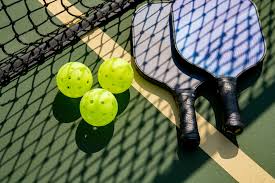
Breaking News
 "I've Always Gotten Along with President Putin" | Trump's TED Talk on War and Frie
"I've Always Gotten Along with President Putin" | Trump's TED Talk on War and Frie
 The court is calling: How pickleball is rewiring brains, one volley at a time
The court is calling: How pickleball is rewiring brains, one volley at a time
 SpaceX aims to launch Starship Flight 10 test flight on Aug. 24
SpaceX aims to launch Starship Flight 10 test flight on Aug. 24
 What is Peter Thiel's Role In The Technocratic Takeover Of Washington?
What is Peter Thiel's Role In The Technocratic Takeover Of Washington?
Top Tech News
 Chinese Scientists Produce 'Impossible' Steel to Line Nuclear Fusion Reactors in Major Break
Chinese Scientists Produce 'Impossible' Steel to Line Nuclear Fusion Reactors in Major Break
 1,000 miles: EV range world record demolished ... by a pickup truck
1,000 miles: EV range world record demolished ... by a pickup truck
 Fermented Stevia Extract Kills Pancreatic Cancer Cells In Lab Tests
Fermented Stevia Extract Kills Pancreatic Cancer Cells In Lab Tests
 3D printing set to slash nuclear plant build times & costs
3D printing set to slash nuclear plant build times & costs
 You can design the wheels for NASA's next moon vehicle with the 'Rock and Roll Challenge
You can design the wheels for NASA's next moon vehicle with the 'Rock and Roll Challenge
 'Robot skin' beats human reflexes, transforms grip with fabric-powered touch
'Robot skin' beats human reflexes, transforms grip with fabric-powered touch
 World's first nuclear fusion plant being built in US to power Microsoft data centers
World's first nuclear fusion plant being built in US to power Microsoft data centers
 The mitochondria are more than just the "powerhouse of the cell" – they initiate immune...
The mitochondria are more than just the "powerhouse of the cell" – they initiate immune...
 Historic Aviation Engine Advance to Unlock Hypersonic Mach 10 Planes
Historic Aviation Engine Advance to Unlock Hypersonic Mach 10 Planes
 OpenAI CEO Sam Altman Pitches Eyeball-Scanning World ID to Bankers
OpenAI CEO Sam Altman Pitches Eyeball-Scanning World ID to Bankers
The court is calling: How pickleball is rewiring brains, one volley at a time

This isn't just another backyard game — it's pickleball, the sport sweeping the nation. What started as a quirky hybrid of tennis, ping pong, and badminton has become America's fastest-growing pastime, with nearly 5 million players hooked on its addictive blend of competition and camaraderie. But here's the twist: While players chase the thrill of the perfect dink shot, their brains are getting a stealthy upgrade due to enhancements in proprioception.
From sharpening hand-eye coordination to fortifying social bonds that shield against dementia and loneliness, this unassuming sport is quietly rewriting the rules of aging, memory and mental resilience. And the best part? You don't need to be a pro to reap the rewards.
Key points:
Pickleball's explosive popularity isn't just about fun — it's a neurological powerhouse, blending physical exercise with cognitive challenges that stimulate brain growth.
The sport enhances proprioception (your brain's GPS for body movement), a skill that deteriorates with age but is critical for balance, coordination, and fall prevention.
Social interaction on the court acts as a shield against cognitive decline, with studies linking loneliness to a 28 percent higher dementia risk.
Simple drills — even playing catch — can mimic pickleball's brain benefits, proving you don't need a paddle to start protecting your mind.
A game of inches — and neurons
When Louisa Nicola, a neurophysiologist who bridges the gap between elite athletics and brain science, first examined pickleball through her lens of expertise, she saw something remarkable: a sport that doubles as proprioceptive training. That's a fancy term for your brain's ability to track your body in space — where your feet are planted, how your arm angles to meet a flying ball, the split-second calculations that turn a stumble into a save.
"You cannot achieve anything without understanding where you are in space and time," Nicola explains, her voice carrying the weight of someone who's studied how athletes' brains outmaneuver opponents before their bodies even move. Proprioception isn't just about athletic prowess; it's the silent guardian of aging gracefully. As we grow older, this internal GPS weakens, leaving us more prone to falls, clumsiness, and the frustrating sense that our bodies have betrayed us. But sports like pickleball? They're like a tune-up for the brain's wiring.



